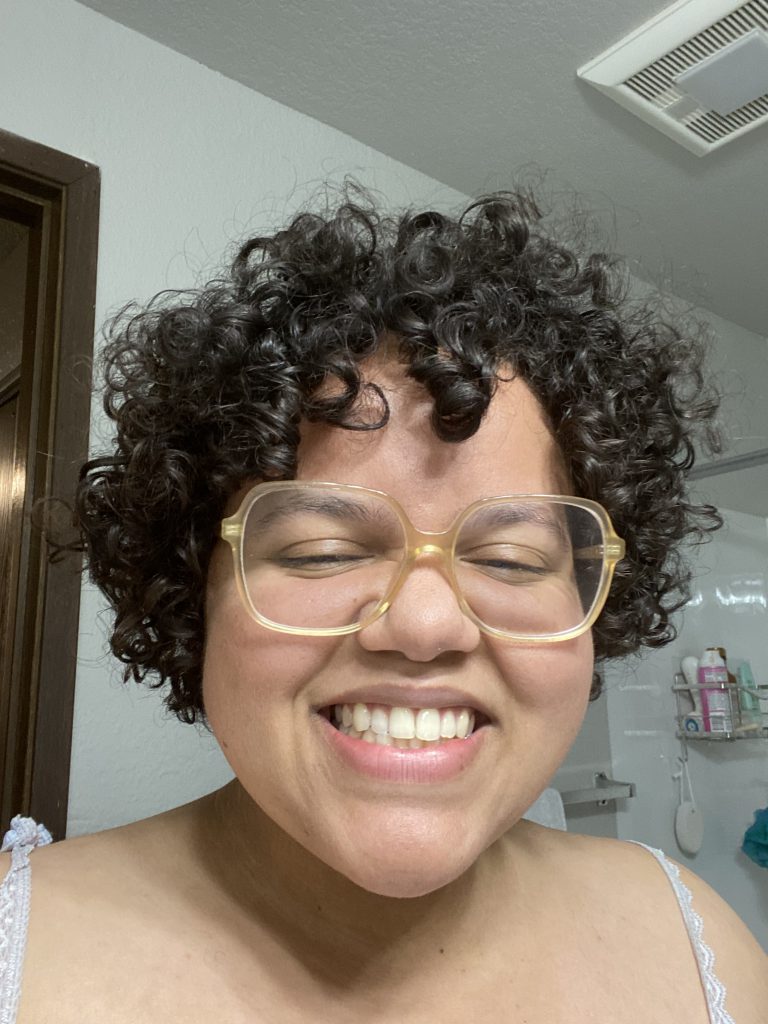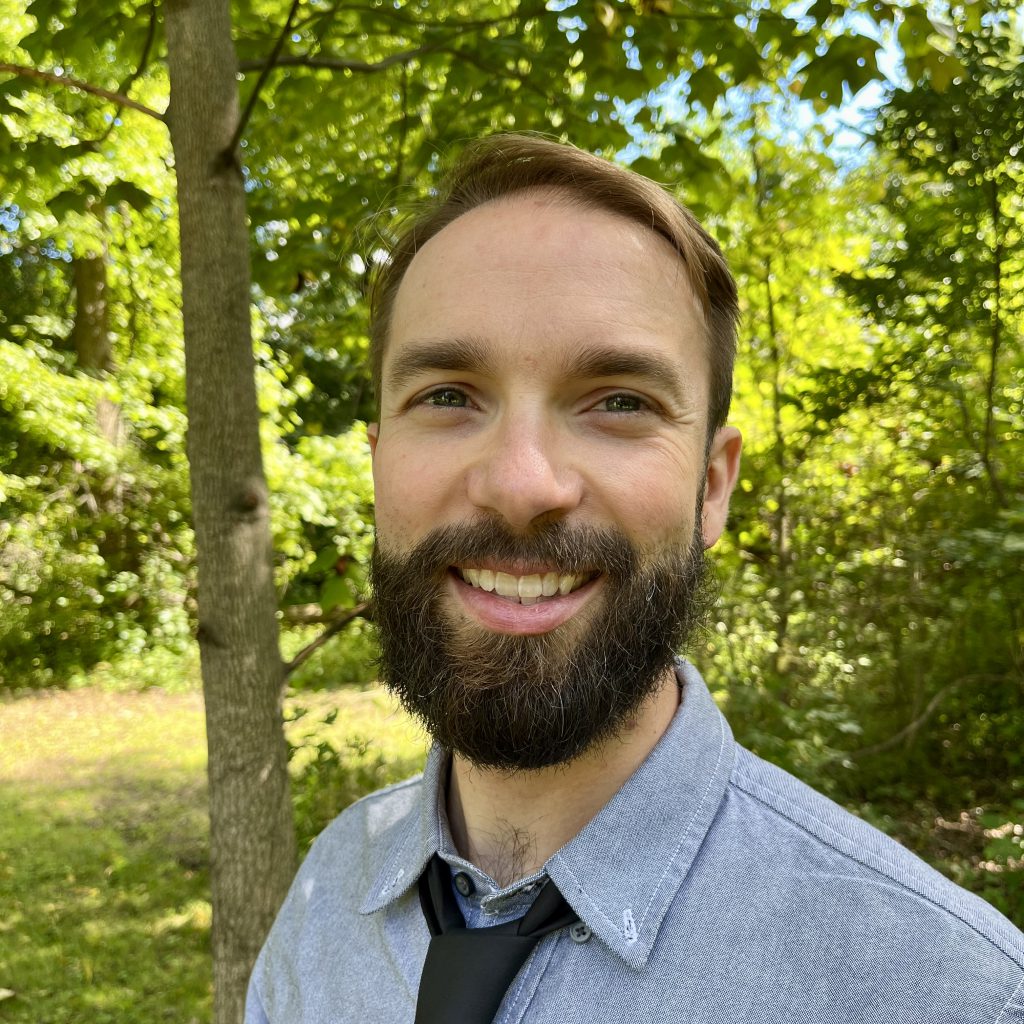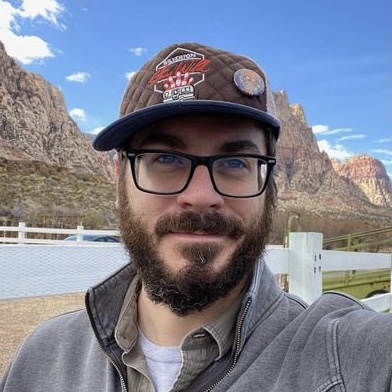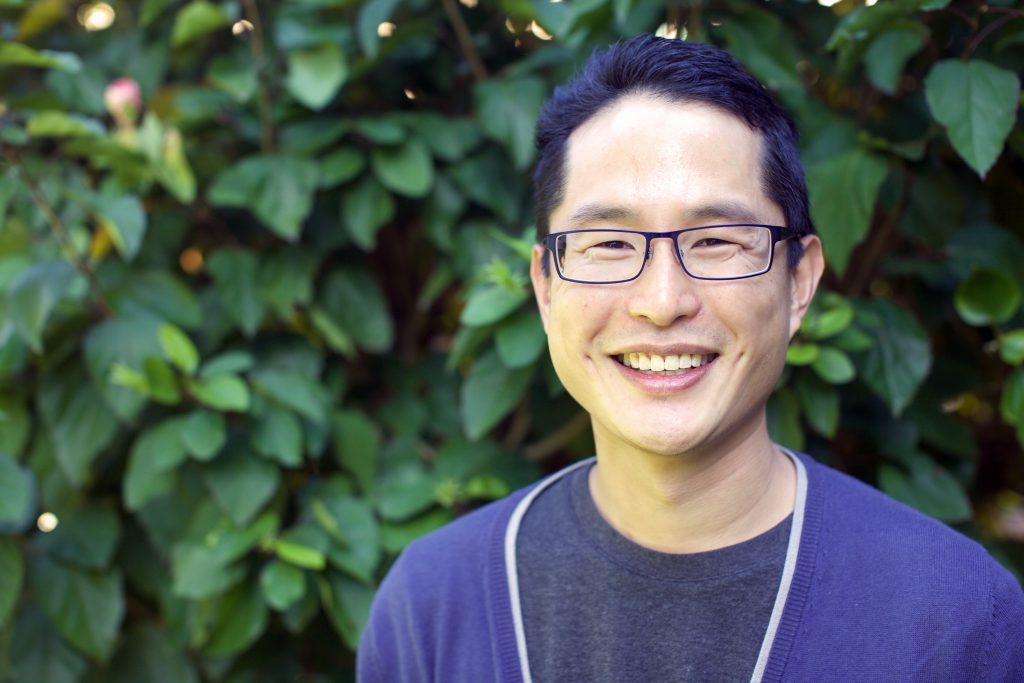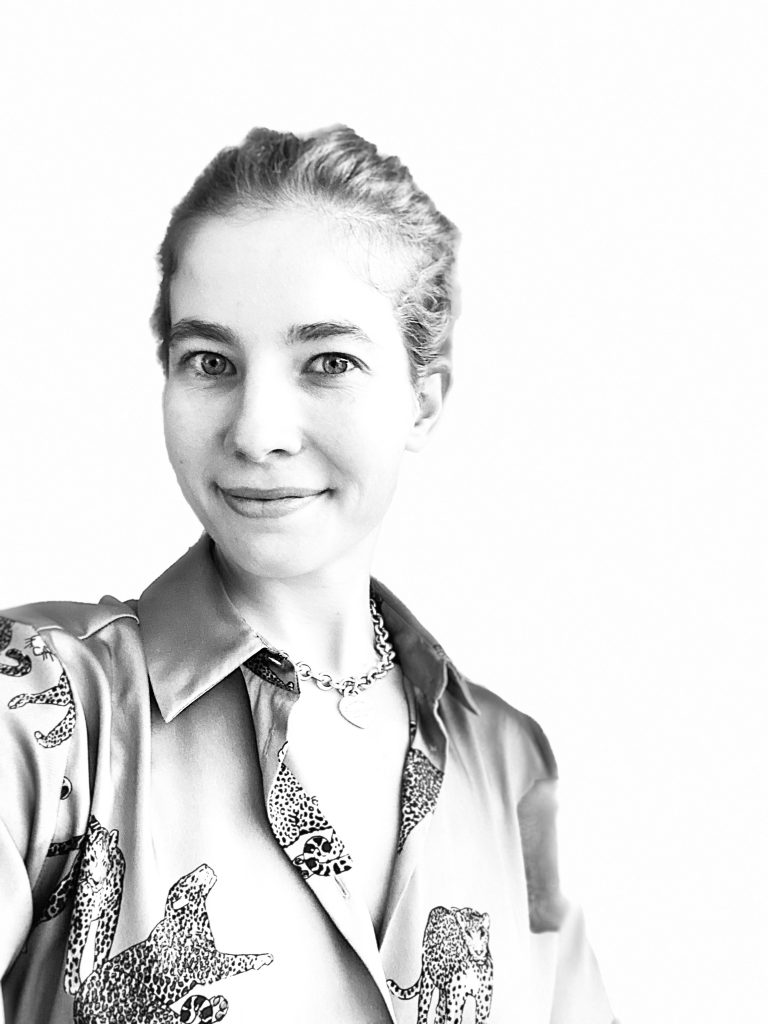edited by Kel Coleman
Content note (click for details)
Content note: gender-based violence, sexual violence, domestic violence, deathIn the way of Death runs the Vaitaraṇī river. We are flayed open to its woe. We are always aware of its currents in gurgling lungfuls of unease.
Time spun in recursive loops since I died in a scream of metal and flame and asphalt on the Parthibanur State Highway. There was no cremation. What could they consign to the flame? A scorched knob of my torso? My jawbone, still glued with tissue? A lone filling snugly hidden within a lone tooth?
Sometimes, I dreamed about flowing water. About where I would be—not here, anywhere but here—if my body had survived the accident. Mushed, but still recognizable. With its vestigial humanness that demanded respect, especially in death. My ashes would have been tossed into an ocean or a river in a coursing procession of night-blooming jasmine garlands, women who keened and thumped their chests, and drunken louts who gyrated around my urn until they foamed at the mouth. Until they collapsed in exhaustion or pleasure.
When I first began feeding, I wondered if I was a vetāla or a piśāca. But I felt no urge to sway from bael trees or dart into a hedge of thathapoo with its ray-toothed flowers. Besides, I did not have an appetite for birds or small rodents. I only hungered for certain kinds of men.
Maybe I was a mohini.
Still, I had no idea of what that involved. My life before death kaleidoscoped in and out of my field of vision, shimmery and indistinct. My knowledge of mohinis was from B-grade movies that appeared in torn lesions of memory—of sullen heroines with thick, kohl-rimmed eyes and billowing hair who always wore chiffon saris, leaving little to the imagination. Their dark areolas were signal-flares, beckoning the film hero through transparent fabric. And they always ambushed him along a quiet road, devouring the hero in more ways than one.
I did not know how to seduce the men I wanted to eat, but they came willingly enough as soon as they recognized a somewhat feminine shape under my soiled clothes. The lorry drivers who were lean and sharp as machetes, with their drug-glazed eyes and arrack breaths. The college students tweaking on tabs of acid who slid off their motorcycles and into my arms. The married men in respectable cars who were the easiest, who didn’t even pretend to notice the windshield wiper piercing the larvae-rimmed void in my neck. I gorged on them all, sucked the marrow out of each knuckle and each toenail until they were reduced to papery, crumbling husks.
For a brief moment, my hunger would lessen. My skin felt supple, but I distrusted this newness, this heft, because I was nothing. A nothing death for a nothing life that I couldn’t even fathom. So, I walked and fed along the highway, along this momentary emptiness. This was all I knew.
***
The Vaitaraṇī yawns into a chasm of blistering liquid. We have valleys to ascend. A darkness like pitch, cupping our throats. We drink.
Three relevant details marked the day I first saw her.
1.
I was irritated. I had just eaten a middle-aged auditor in a safari suit; a tuft of a man with an unnaturally distended face. His skin held the waxy quality of an ash gourd. He had grabbed my windshield wiper the moment I approached him, trying to nail me in place as he frantically undid my salwar with his free hand. I snapped his neck clean in half and fed on his corpse in haste; before he inflated into a fleshy, putrescine balloon that squirted post-mortem gases and fluids everywhere. He tasted rubbery and sulfuric.
2.
Post-feeding, I began to walk. I took my time on the Parthibanur highway corridor that yoked the big city with an industrial waste landfill, a polytechnic college that was also a homeopathic dispensary after sunset, and a shantytown that buzzed with a thriving opioid trade. Flyovers latticed the sky as far as I could see. This was a slim keyhole of space carved by rushing streams of traffic. And yet, shops and tiffin centers mushroomed out of necessity along the sides of the road.
On this day, I avoided the streetlights, only weaving through deepening puddles of dusk. I stopped behind the biryani center, hoping to smell the food—crescent moons of slippery onions, sizzling fat, goat carcasses hung from hooks arrayed across the tin roof. My efforts never amounted to anything. I could only smell my human prey right before I fed—their fear and lust coating my tongue in a gummy residue.
I crossed a construction site wadded between a fancy store and the biryani center, where laborers were splayed atop one another in a ganja-induced fog. At least someone’s having fun, I thought.
Finally, I arrived at the Sri Annai Fancy Store that sold everything from hair clips to bluish-hued stage jewelry that glimmered in various states of oxidation, to jumper cables for car batteries and even tickets to the latest political rallies that zigzagged through this area. I moved behind the store where I melted into the gloom of the urine-soaked wall. Its surface was papered in flaking Kanneer Anjali posters; giant cartoon tears embellishing a printed photo of the newly-dead, so every passerby could mourn the end of a stranger’s life. I watched people mill in and out of the shop for a long time.
As the night wore on, I became restless.
3.
A sudden quietude. My irises cleaved with visions of a bloated river in spate. And just as quickly, a wall of heat sliced through the mist, chasing the images away, snapping me back into the here and now.
And then I saw her, the Beautiful One.
A Benz pulled in front of the shop. She stepped out of the car in a sari that was bioluminescent, flashing green as she moved. A tight braid sheathed in nerium buds swung down to her buttocks. Welts mapped the sides of her hips and circled around to her back. Her left eye was a faceted ruby under the streetlight, burst capillaries tinting it red.
As I watched her, my loneliness opened under my feet in a sinkhole, taking me unawares. At first, I thought it might have just been my hunger. But it turned out to be something else entirely.
***
The riverbank softens into caustic sludge. A forest winks on the far shore. The iron-leaved trees ring ceaselessly.
From that moment onwards, I staked my days around the locus of her. My life had now bisected itself into two clean halves. The first, an endless conveyor-belt of time and repetition and grasping men. And now, every moment attuned to the Beautiful One’s presence. I could not allow myself to believe that I would never see her again. Every day, I tried to observe smudges of traffic for a gunmetal-hued Benz.
Luckily, I did not have to work too hard. She had a routine, as I soon learned.
The Beautiful One visited the fancy store twice a week. Her shopping done, she would glide into the cool tomb of the Benz and leave. But sometimes, she would walk down to the biryani center and order a packet of mutton trotters and rice.
I ached for those moments when the night blinked to a standstill; the Beautiful One sheathed in green silks, waiting for her food, almost immobile. I would dissolve into the long shadow of a concrete pillar at the construction site. I could have spent several lifetimes in that ribbon of time, of vehicles and mutton parts and the form of her illumed by headlights, every time a car passed us by.
And in those instances, I would always hear rippling water, a low hum that filmed over me.
Some weeks, the Beautiful One arrived at the biriyani center with a man. I soon realized that this was the man that owned the gunmetal Benz. Piecing together an overheard mosaic of conversations, I learned that he was an up-and-coming Big Man, a land mafia goon who also nurtured a fierce political will. With the Beautiful One by his side, he would hold kangaroo courts for his oily sycophants after he had sated himself on flattery and food. He had a wife and eight grown children.
Big Men always had perfect families, and the Beautiful One was not his wife.
Every time the Big Man visited the biryani center with his entourage, he would be seated on a clean bench as befitting his status. His hangers-on arrayed themselves around his feet. He would then present a knotted length of fresh oleander to the Beautiful One, his face slicked with anticipation. She would untie it gently. The Big Man would jerk her closer as she squirmed in his thick arm, as he bound and fastened the oleander around her hair. This was a regular show, a marquee-lit warning to his followers that were mostly made up of young men with hungry eyes and hungrier ambitions. A show to remind them that she was utterly off-limits, belonging only to him. She never spoke a word through it all.
The first time the Beautiful One saw me through the grease-grimed windowpane of the biryani center, she did not scream or flinch. She continued eating; a placid metronome of movement from hand to mouth. I had become careless, wanting a closer look. But I couldn’t help myself.
Her pale green sari faded white against the fluorescent lamp on the wall. Her neck shone purple with bruises. The Big Man was making a joke about her engorged lips, about his biting habit, about how he wanted to swallow her whole.
I do what I have to, he said. If I want a midnight snack, I must eat.
His sycophants laughed and hooted as if on cue. The Beautiful One continued to eat in silence. She never looked away from me.
As the night wore on, one of the hangers-on had whipped out a phone. Something about a cricket match. Vast, liquid streams of money being moved around in gambling bets overtook the conversation. While the Big Man hissed threats and growled sequences of numbers into several cellphones, the Beautiful One escaped onto the back porch to wash her hands.
This was my chance. I swiftly emerged near the water drum.
I’m sorry, I whispered. Please, please don’t be afraid. I’m sorr—
There you are, she said, without surprise. Valikkarutha? Does it hurt?
She gestured at my throat, the bent rod. I suddenly felt self-conscious.
No. Not really.
She smiled then. Do you have a name?
I don’t remember.
Ah, I also had one name. But he—and she pointed to the Big Man inside—gave me another.
Naa usuruoda illai. I blurted. I’m not alive.
She looked at me for what felt like a long, unbearable flue of time. A glassy-skinned lizard darted across the floor.
I know, she finally said, and walked back into the biryani center.
***
The moon is a thin, curved line over the way of Death. A smile ripped from an unwilling mouth.
The Beautiful One and I started talking to each other. Our exchanges were quiet and unobtrusive while she waited alone in the semi-opaque dimness for her mutton trotters. No one seemed to notice.
Once, she even offered to buy me food.
No no, I don’t—I can’t eat this.
She was thoughtful. If you’re dead, then you can eat rice?
I’m not sure.
At my grandma’s funeral, I made ellu saadam urundai, rolled balls of black-sesame rice.
She spoke of her grandmother often. Of how the old woman stubbornly refused to wear a blouse, choosing to only drape her sari on bare skin. Of her saucer-wide earlobes that were adorned with thandatti; earrings floating over her clavicles in tetrahedrons of gold. Of how she meticulously prepared paaya—a goat leg broth simmered for hours in coconut milk.
I used to hate it, The Beautiful One laughed.
I tried to hide my smile. But, this is what you always order.
She told me that she had despised its viscid collagen taste, its phlegm-green hue. However, once her paati died, she began to crave its smooth pepperiness. Now she ate it whenever she could.
It’s okay ma, she said. This is all I want to eat.
In that moment, I understood the shape and contour of her particular craving for this dish. I wanted to tell her that my appetite was singular as well, that I could only consume one thing. That, like her, I was also bound to a hunger not of my choosing.
It makes sense, I said.
Another night. The Beautiful One pushed a steel tiffin box into my hands.
Just try it.
Later, I opened it when I was alone. Greasy, undulating mounds of black-sesame rice spilled out of the container. I attempted to eat one, but it gummed over the section of the windshield wiper that cored my flesh. I coughed out what was left of the rice, and as if on cue, flesh flies immediately glazed it in mucus.
I closed the box tightly. I wanted to preserve its contents for as long as I could. I wanted to ask her if I could keep it, because it was hers, because it tethered me to her in a connective skein, a talisman for when she was gone.
Maybe next time, I promised myself.
***
A well of laments, a hillock, and a cascade of spear points. How do we rent ourselves asunder?
The Big Man was angry. He twisted through the biryani center in gales of unshed rage. Back and forth, back and forth he loped, toppling chairs when his fury dribbled out of his mouth in expletives. No one dared to approach him. He crushed three cellphones in his fists.
Fear sent his entourage skittering for cover.
Investment failure.
Land deal pochchu. He is finished.
CBI raid.
I caught some murmurs from the sycophants. It appeared as though the Big Man had lost a lot of money. I did not care about the erratic ticker tape of his businesses or his ambitions. I only sought the Beautiful One. I found her on the back porch of the biryani center, leaning, as always, against the water drum. A motionless pillar wearing silence.
Inside, the beatings began.
The Big Man’s anger had detonated at last. A sycophant lost an eyeball. Another one got his nose broken. A veshti-clad octogenarian tottered up to the Big Man and softly touched his arm. This was an expensive mistake. The Big Man broke a bench over the man’s head. The octogenarian crumpled into a mess of flesh and exposed bone with an odd, burbling sound.
This was when the Beautiful One decided to intervene, decided to unsnarl the tangle of the Big Man’s brutality somehow, decided to drape herself over the octogenarian in response.
Before I could stop her, before I could shield her from the unerring finality of the Big Man’s fist, before, before, before, before everything, this night, the biryani center, the gunmetal Benz, the known arc of his violence, his hand sliced across her face. Once, twice, thrice.
The Beautiful One’s body bent at an impossible angle and folded in on itself. Her teeth rattled out of her mouth in a gasping breath. I rushed over to her and pinched my way up her arms, her neck. I begged for a thrum, a pulse, its percussive hope. There was nothing.
In that instant, madness undid me from the vacuum of survival.
I scratched away my clothes and wailed until the tin roof peeled from the scaffolding. I leaped onto the Big Man’s shoulders and held him still between my thighs. He continued to thrash with his bulk. I blurred into a wreath of hair as my jaw unhinged into his, as I impaled him in place with the windshield wiper, its usefulness finally telegraphing into view. A soupy, maggot-infested gush slopped around our feet.
I was ravenous.
But in this instance, there was no polypeptide rush that seared my bowels with hunger, no apathy at the conveyor-belt looping of men that I usually fed on. Instead, my skin thrummed with newness—a fury, lined with teeth.
I took my time in consuming the Big Man, his innards roping over my knees in glossy coils as I slurped through every tendon and nail and gristle. I saved his hands for last.
***
We bring no payment, no supplication, no penance. The opposite of the Vaitaraṇī river cannot be seen. Twelve suns glare overhead.
At first, I was nothing. Then I felt the throb of something in me, someone even, in the presence of the Beautiful One. And with her gone, I had heaved over the cliff-face of nothings and somethings and someones altogether.
I crawled to her corpse and pulled it close, her skin to my skin. The Big Man’s blood hammered inside the double-jointed cavern of my gaunt frame.
I lay there for a long time, letting the Beautiful One’s body stiffen in my arms. Her anguish blushed into focus because I perceived her. Like tuning into the radio at the right frequency, the wavelets of our isolation looping into a mutual current of existence. A woman could succumb to a five-lane mash of traffic, and people would continue to drift along their lives, her death a transient blip. Another woman sat, her skin strobing with wounds, and everyone pretended not to see. But I did. And the Beautiful One had perceived me too. In that, we were one.
At last the river arrived, as I knew it would.
It coursed through my body in long, deafening sheets of sound. And then the heat, rupturing the eventide and the stars and the deepest dark as it split the night wide-open across the waters.
We waded into the boiling flood, the Beautiful One and I. I held her corpse taut against mine. The river scoured away the last bits of us in burning rinds of flesh and hair. Marrow-laced foam filled my throat. It tasted of smelted copper ore, the embers of a long-ago life. It tasted of relief. Maybe even joy, though I could not remember what that was anymore.
© 2023 by M.L. Krishnan
3030 words
Author’s Note: I wanted to write about a kind of visceral loneliness that underpins queer identities, especially in spaces where concealing yourself is both necessary and integral to survival. I wanted to write about left-behind women, about being unseen—the invisibility that cloaks over a person even with their flesh-and-blood presence in the room. Growing up in Tamil Nadu, I have always been fascinated by the Mohini mythos whose lore continues to weave through the axes of the divine, the profane, and almost every cultural mundanity in-between. My memory is very visual, so I knew that I had a story in my hands when I kept seeing a persistent image of a woman in my head, trawling a highway in order to sate her hunger. And so I found a way to weave all these threads together when I sat down to write her into existence.
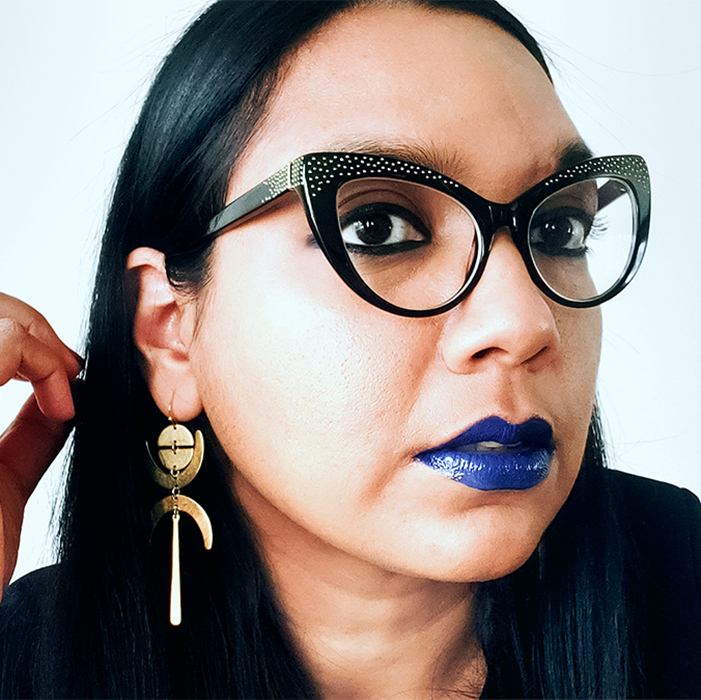
M. L. Krishnan originally hails from the coastal shores of Tamil Nadu, India. She is a 2019 graduate of the Clarion West Writers Workshop, a 2022 recipient of the Millay Arts Fellowship, and a 2022-2023 MacDowell Fellow. Her work has appeared, or is forthcoming in The Offing, PodCastle, Baffling Magazine, The Best Microfiction 2022 Anthology and elsewhere. You can find her at: mlkrishnan.com.
If you enjoyed the story you might also want to visit our Support Page, or read the other story offerings.

